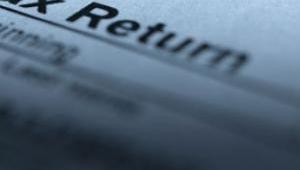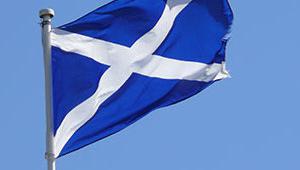Whatever happened to Alex Salmond? The Conservatives invested big money in billboards of the former first minister, looking like a smug Silvio Berlusconi, with Ed Miliband in his pocket. Then in the first of the televised debates, Britain was introduced to the new nationalist bogey-person: Nicola Sturgeon.
Except that, they seemed to like what they saw. The first minister seems to create a very different vibe among non- Scottish voters. This is largely because Sturgeon sounds natural, is well turned out and seems to know what she’s talking about. Many commentators have taken to her in a rather big way.
The BBC reported after the TV debates that Sturgeon was the most popular political leader in the UK, though that may largely have been novelty value. Certainly her approval ratings in Scotland are stratospheric.
She scores a net approval of plus 48 against her rival the Labour leader, Jim Murphy, on minus 18. Ed Miliband is minus 47. The SNP leader is more popular even than Salmond in his heyday. Indeed, she seems to be regarded with the kind of affection usually reserved for celebrities or members of royal families.
What happened to Salmond? Well, as an expert self-publicist, he knows how to disappear when he needs to. He is in his Gordon constituency, where he hopes to replace the retiring Liberal Democrat incumbent, Malcolm Bruce. And according to the polls, he will.
Now, I have been spending the last five months telling everyone I speak to not to take any notice of the SNP’s opinion poll lead. It can’t last ... a referendum effect ... forces of gravity. But it seems that the laws of gravity have been suspended for the duration of this election, because the SNP’s lead, far from returning to ‘normal’ levels, continues to soar into ever-greater realms of unreality.
The recent TNS poll for the Times gave the Nationalists a 28 point lead over Labour, at 52% to 24%. The joke on social media was that this was a ‘blow for Sturgeon’ because it showed that nearly half of Scottish voters would not vote SNP. If this is replicated on polling day then the Scottish National Party could return 53 out of 59 Scottish seats. Landslide is hardly adequate to describe this.
To Labour’s intense frustration this has occurred after serious questions have been asked about the SNP’s headline policy of full fiscal autonomy. The Institute for Fiscal Studies suggested that if the Barnett formula were scrapped and the Scottish Parliament were to raise all its revenues through taxation, Scotland would face a £7.6bn deficit. This allowed Labour to replay its best lines from the independence referendum campaign, claiming that pensions would be at risk and Scottish public spending would have to be cut.
However, voters don’t seem to have responded. This is partly because it’s clear that full fiscal autonomy is not going to happen any time soon. All the big Westminster parties are opposed and it would require legislation.
The other reason is that Labour’s own tax and spending policy is in disarray. On the day of Labour’s UK manifesto launch, shadow chancellor Ed Balls made clear that Labour is planning spending cuts in Scotland in non-protected areas. This contradicted Murphy’s assertion the previous day that ‘there need be no cuts after 2015/16’.
The truth is, no one seems to be talking sense about tax. But Labour’s campaign could hardly have got off to a worse start. The ‘Sturgeonator’, as the SNP leader is being called, looks unstoppable. This could be the biggest upset in British electoral history.




















